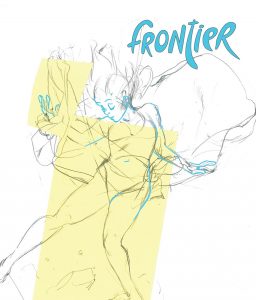
Another fascinating aspect of Frontier #14 is that it’s interspersed with poetry written on an iPhone. Beautiful prose about connection and the importance of relationships. There’s something to be said about the ephemeral aspect of writing on an iPhone. With the entirety of the world’s information at your disposal and countless distractions possible, there’s a note, hidden under all these layers and folders, containing a tiny kernel of poetry. Putting a photo of a hand holding the iPhone within the book itself is an innovation I enjoyed. It places the fleeting digital poetry firmly into a lasting print format that will never change or disappear.
Frontier #14 is permeated with the idea of motion. We move from Rebecca’s early sketchbook idea for a cartoon called “Margo in Bed” that will never be seen in animated form. We witness the raw drawings of a young artist exploring her style, her interests and we see it evolve over time into something much more complex, more refined. As we move towards the end of the comic, we begin to recognize her style in the illustrations and see the similarities with her other work, Steven Universe. It shows the development of her style from beginning to today. There’s also a beautiful acknowledgment of Sugar’s interest in movement and dance that comes from her mother. Her grandmother is also referenced in the dedication at the start of the book. Movement was an integral part of her family life and something that became part of her style. “Whenever I feel lost, I draw dancers” she explains, as drawing dancers is a way to anchor herself, to sooth herself. The final part of the book is filled with ever more expertly drawn dancers in movement, which culminates in a series of drawings inching ever closer to her current visual style.
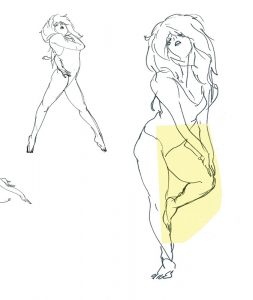
Frontier #14
Rebecca Sugar
Youth In Decline
$7.95
Buy online


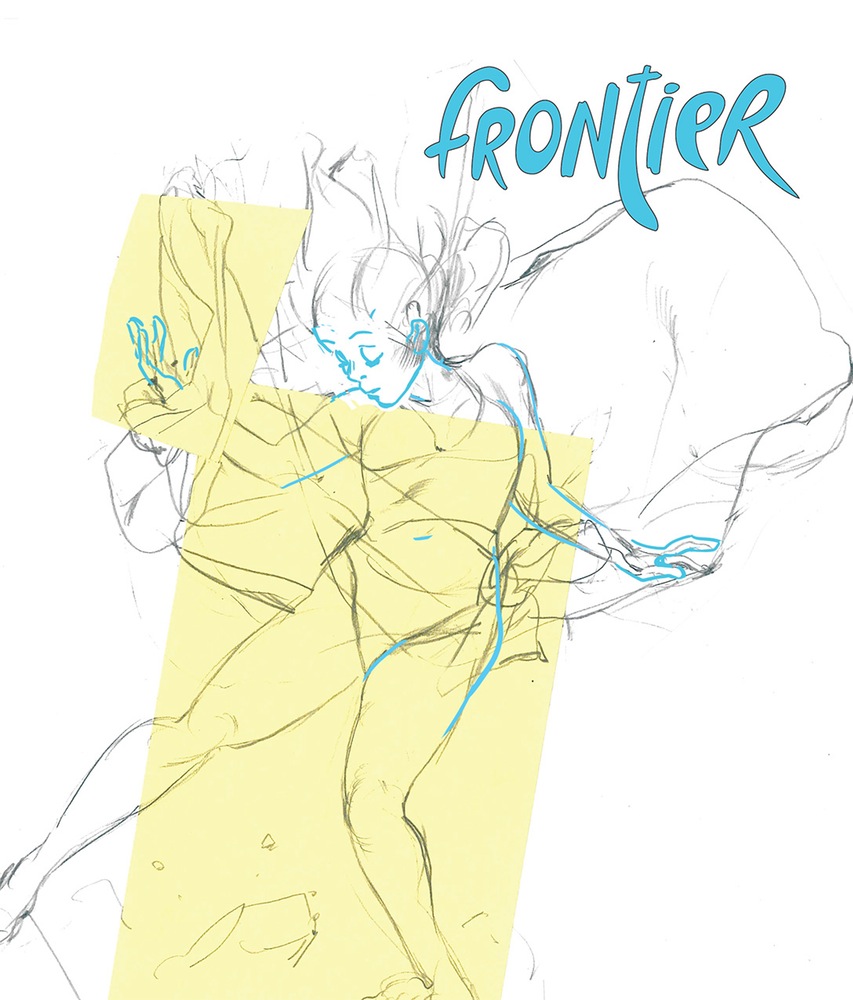
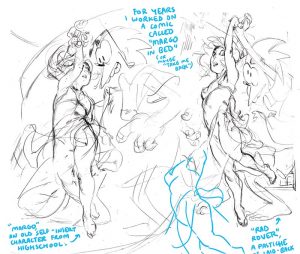
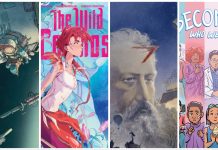

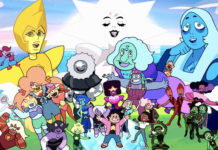



Are there supposed to be several repeated pages in this book or is my copy a bit glitchy somehow? I assume it’s intentional, but misprints are always possible.
Hi Rich, I don’t know about misprints or glitches. I suggest you send a note to Youth in Decline, I’m sure they’ll be able to help you with this.
Comments are closed.